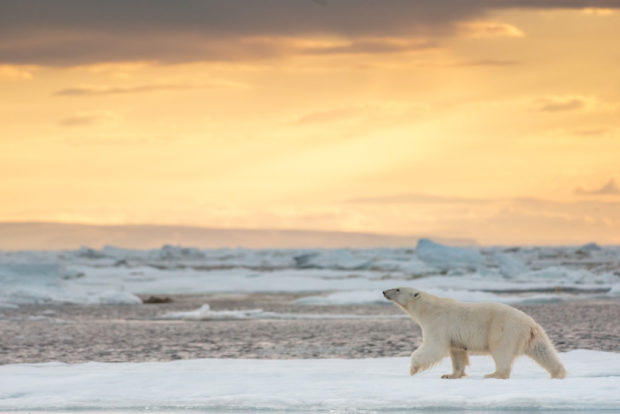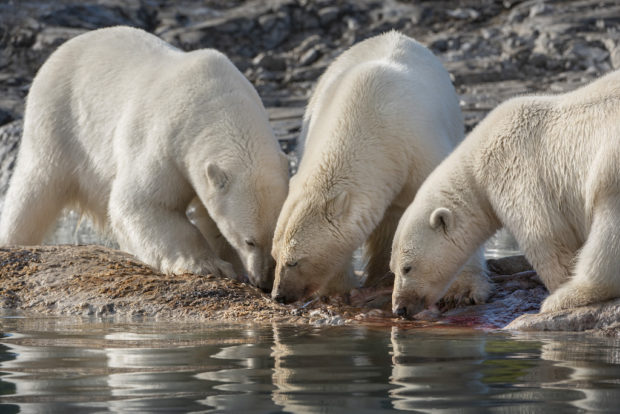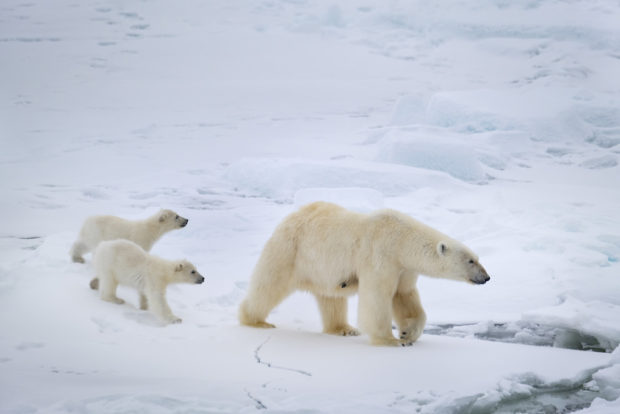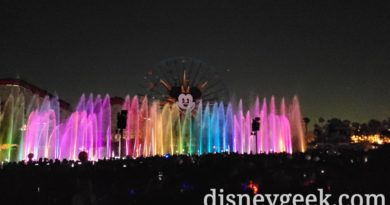DisneyNature’s “Polar Bear”

Streaming now on Disney+ is “Polar Bear,” the latest documentary from DisneyNature. Released to coincide with Earth Day, “Polar Bear” is the first person (first bear-son) account of an arctic bear recounting memories of childhood in preparation to raise her own cubs. She recalls the joy of a successful hunt, and the struggles that melting ice pose for hungry bears.
“Polar Bear” is directed by Alastair Fothergill and Jeff Wilson, and narrated by Academy Award nominated actress Catherine Keener. The project was a tough pitch as polar bears are both difficult to find and film. However, the directors had faith in the project.

“I’ve always known that polar bears would deliver—they’re unbelievably beautiful creatures and simply dominant in their habitat,” Fothergill says. “But when we first pitched the film, we weren’t expecting it to have an environmental component because we didn’t know at the time how much climate change would affect the Arctic. We always knew it was happening faster in the Arctic than anywhere else in the world, but we didn’t expect it to be quite as drastic as it is. Polar bears have been forced to adapt—we witnessed it and captured some of those behaviors—it’s extraordinary. But they have a tough road ahead.”
That tough road is clearly on display in the film. While the early moments of “Polar Bear” include some lighthearted shots of cubs romping, tussling and grabbing their paws, the documentary is unflinching in its depiction of the severe changes to habitat, resources and life cycle that climate change has on the species. A mother bear swimming her cubs between increasingly distant ice floes, a hunt foiled by a starving and aggressive male polar bear, paws sinking into the once frozen solid land.

This is the first of the DisneyNature films to be rated PG rather than G, I would imagine because of some pretty rough footage of animal carcasses. At one point a whale carcass washes ashore and becomes a rare feast for a large pack of polar bears, normally solitary. The footage of the bear tearing through the whale skin to the blubber is visceral, to say the least.

I went into “Polar Bear” hoping for a similar movie experience to the directors’ 2019 film “Penguins,” but found it decidedly different, partially due to the gravity with which the film treats climate change, and more serious narration. Perhaps it is the decision to take a more serious tone with a more dramatic narrator, the more typical film score, or the fact that the screen usually features a white bear on a white background, but “Polar Bear” did not keep my attention. The frame story cooked up by the filmmakers just did not quite live up to the spectacular footage.
“Polar Bear” is streaming now on Disney+.


